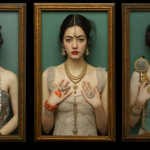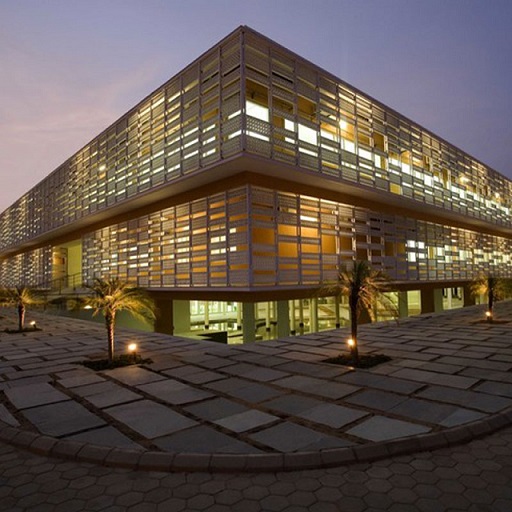Dr. Sarvepalli Radhakrishnan, our second President, also a great teacher and we celebrate teacher’s day in India in his remembrance. In one of his quotes on education, he says “the end product of education should be a free creative man who can battle against historical circumstances and adversities of nature”. In another one, he quotes “when we think we know, we cease to learn”. Through both quotes, our 20th century philosopher was referring to certain attitudes which education should provide and help to build.
Attitude is an awareness which triggers the temperament to think creatively and inspires us to take initiatives to understand and drive experiences.
All educational theories encompass teaching and assessment of knowledge, skills and attitudes. While we find it easier to define knowledge and skills, definitions of attitudes vary. We may come across individuals who possess the knowledge and skills to a do a task, but only with a positive attitude towards the task will there be motivation, engagement and intention to complete the task.
So how do we build right kind of attitude in this generation which has grown up in the digital age, in the world of connectivity, remote working, never shut off or disconnect and have never known a pre-Internet world?
Let us look at the visible characteristics of this generation, which could help in approaching the above question with some perspective.
As academicians, teachers and professionals in the creative industry we constantly take cognizance of the current Gen Z’s, who are pursuing higher education. They will be voting next year, will decide the government of this nation and in next three years will join the industry and begin to actively define our society, contribute in its progress and well-being.

This generation consumes information by switching between multiple platforms and devices. This snip-snap from platform to platform is a defining feature of Gen Z, and since a picture paints a thousand words, imagery is more their style. Instagram and Snapchat are their primary modes of communication and they’re natural information-seekers. They are growing up alongside Google, Wikipedia, YouTube, eHow, Buzzfeed, so on and so forth. They know how to locate the information that they’re looking for and aren’t afraid to be resourceful. This is leading to develop and equip Gen Z with stronger virtual communication skills, online collaboration skills, and more of an entrepreneurial spirit, which is that they’re used to finding and working things out for themselves. They grew up in a framework of already established social media and learnt to find information online from an early age. This we need to consider while designing, defining and driving our courses, curriculum and pedagogy both in f-2-f learning and e-learning environment, because if it’s not clear, succinct and is available across multiple platforms, the learner may leave and just go somewhere else, which is a result of one of the characteristics of Gen Z, the short attention span.
Therefore, today’s informed mentors exercise a democratic leadership style rather than autocratic or passive style. Learning by doing method where students can be actively involved in the teaching learning process, play way method, learning by experience or activity method which help self-effort of students to learn by themselves. Observation methods, where students observe their surrounding environment, people, things and learn. Today facilitators follow different approaches and methods of teaching according to the interests, capacities and aptitude of the learner.

Teachers in this way are stage setter who gives the stage to students and create learning situations or environment so that students learns themselves. This builds learnability in students: “the desire and ability to quickly grow and adapt one’s skill set to remain employable throughout their working life.” As technological innovation accelerates the pace of change, there is growing awareness that individuals who seek learning opportunities will be better positioned for career growth. Today, professional success is determined both by an individual’s ability to adapt to change and their willingness to own the progression of their career.
A democratic pedagogical approach seeks maximum involvement and participation of every member in all decisions affecting the group and attempts to spread responsibility. The democratic style complements Paulo Freire’s pedagogy in the sense that human beings are concerned with making the world a more human and liberating place for all where people become co-creators of their lives. 20th century’s leading Brazilian educator and author, Paulo Freire’s “banking concept of education” versus “facilitation of the problem-posing method” is indicative of the pedagogical approach needed for this generation which is growing up amidst major events and phenomena, globalization, populism, financial crisis, war, terrorism, pollution, violence and discrimination against gender, race and sex, so on and so forth. In a banking concept of education system, because people are receptors and collectors, they are regarded as objects with empty minds passively receiving deposits of supposed reality from people outside. They have no independence and therefore no ability to rationalise and conceptualise knowledge at a personal level. This “banking concept of education” is premised on the belief that knowledge is perceived as “a ‘gift’ to be bestowed by teachers upon voiceless, patient, ignorant students”.
This in turn results in a state of affairs where “a person is merely in the world, not with the world or with others; the individual is a spectator, not re-creator”. The banking method represents a structure of oppression and control. Freire postulates that true education is a liberating and active educational process, which allows people to become intellectually and genuinely engaged with the learning material and responsible for understanding the material. Both students and teachers are engaged in dialogue to acquire knowledge and experience from each other. This dialogical process should be authentic and creative, and has to take place with sympathy and love. The facilitator assists students to draw from each other’s life experiences and use the resources of knowledge, feelings and experiences of each student. Through effective facilitation students become engaged in processes of active experimentation with concepts and ideas that may prove useful and meaningful for the accomplishment of student’s objectives and development of aspirations. Both facilitator and students are collaboratively concerned with the functioning of the community or society, and by experiencing discomfort the students will most probably develop direction for their own lives. Facilitating in this way makes it more likely that, when students work with community members, they will relate to community members in the same way.

Good teachers are like gardeners, able to see the potential in struggling young seedlings and enjoy watching them grow, develop and bloom. They don’t blame the plant when it’s not performing well; they check the growing conditions. Is the soil the plant is growing in suitable or does it need amending? Does the plant need more or less water; does the plant need more or less sunshine. Good gardeners are good problem solvers, but realize that sometimes no matter what you do, the plant still will not grow the way you would like it to.” Novelist, lyricist, Paulo Coelho explains this in this manner “In life, a person can take one of two attitudes: to build or to plant. The builders might take years over their tasks, but one day, they finish what they’re doing. Then they find that they’re hemmed in by their own walls. Life loses its meaning when the building stops. Then there are those who plant. They endure storms and all the vicissitudes of the seasons, and they rarely rest. But unlike a building, a garden never stops growing. And while it requires the gardener’s constant attention, it also allows life for the gardener to be a great adventure. Gardeners always recognize each other, because they know that in the history of each plant lies the growth of the whole World.”
Prof. Vivek Karmokar, School Head of Foundation at Pearl Academy












